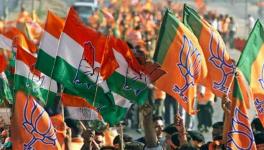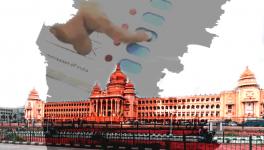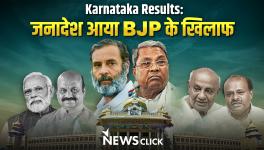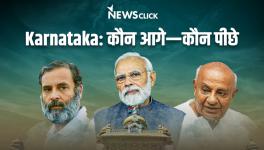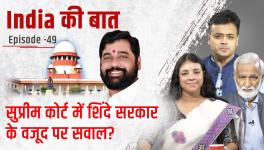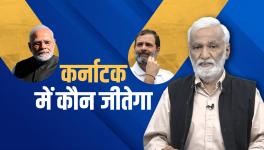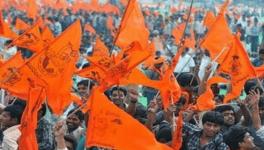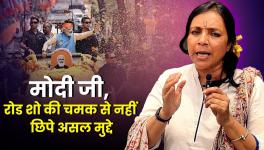BJP Defensive in Karnataka Despite Aggressive Campaign
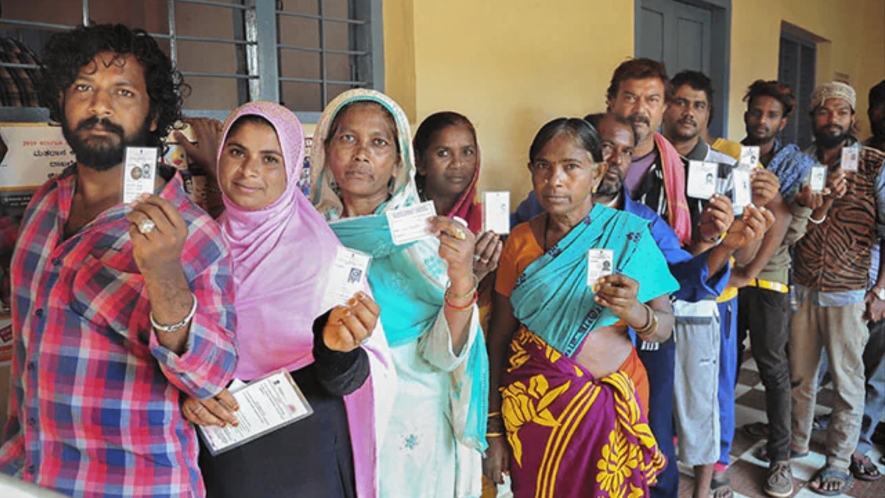
Representational Image. Image Courtesy: PTI
It is impossible to predict which party or combination will form the government in Karnataka once the State Assembly election results are declared on 13 May. But among the major contesting political parties, the Bharatiya Janata Party, the Congress and the Janata Dal (Secular), the ruling party appears the most defensive. It appears that the BJP’s local leadership was fighting with its back against the wall, and finally decided to rely heavily on Prime Minister Narendra Modi to turn the electoral tide in its favour.
Modi Factor Did Not Work in 2013 and 2018
The Prime Minister has campaigned for Assembly polls in Karnataka before, but the record has been disheartening for the BJP. As Chief Minister of Gujarat, Modi campaigned vigorously in the 2013 Assembly election, but his party barely got 40 seats; the Congress won an absolute majority. During the next Assembly election campaign in 2018, Modi’s popularity was at its peak. The 2014 Lok Sabha victory, the BJP’s first such sweep, had positioned him as a formidable national political figure. But in Karnataka, while the BJP emerged as the largest party in the 2018 Assembly election (with BS Yediyurappa as the chief ministerial candidate) it did not get the coveted clean sweep.
So, if the BJP could not get an absolute majority when Modi relentlessly campaigned for it in 2018, why would it succeed in 2023 on the strength of his image when the Basavaraj Bommai government faces tremendous anti-incumbency?
Crisis in BJP
Leaders from the Lingayat community dominate the BJP in Karnataka, and Yediyurappa is a prominent community leader. But, he had to step down as chief minister, yielding space to Bommai, who is seen as unable to govern effectively. Though he is the BJP’s campaign chief, Yediyurappa is not being projected as the future chief minister, displeasing a large section of the Lingayats. Media reports even indicate that the party’s Karnataka unit is not beholden to Modi nor Union Home Minister Amit Shah. The party is still primarily dominated by State leaders, mainly from the Lingayat community. So the BJP’s crisis is building up. Prominent leader BL Santosh has been given prominence in the party, and he has pushed the hard-line agenda but that has also not been working for the BJP.
Harsh Economic Consequences Trump All Else
Not just Muslims, even Hindus are disaffected with the BJP in Karnataka because of the adverse economic consequences of the stringent law prohibiting cow slaughter enacted in 2020. Hindu cultivators have often complained that the market for unproductive cows and oxen vanished because the buyers, mostly Muslims, are scared to trade cattle for fear of cow vigilantes. When the law prohibiting cow slaughter was passed in 2020, the State Finance Ministry alerted the government of its consequences on farmers and cattle-rearers. But the BJP leadership paid no heed. Now, the hardships have come true and exposed the BJP’s agenda of targeting Muslims as detrimental to Hindu interests.
The most serious cause of anti-incumbency against the Bommai government is the deepening perception that it is corrupt. Last year, a contractor died by suicide after accusing a BJP minister of demanding a 40% commission. A school body also wrote to the Prime Minister, complaining about bribery demands from government departments. The allegation levelled by Dingaleshwara Swami of the historical Fakireshwara Mutt in Gadag is also fresh in people’s minds—he said religious institutions were not spared from bribe demands, amounting to 30% of funds released by the government.
One only has to visit social media to see the widespread discontent over charges that money is being demanded from candidates seeking government jobs. All these developments have generated a public perception that high graft levels in every governance sphere are a defining theme in Karnataka, from which even religious institutions are not spared.
The BJP’s attempts to polarise voters by appealing to the Hindus not to use halal meat and boycotting Muslims socially and economically are not working. The hijab issue has faded from public discourse and will unlikely give the BJP the electoral dividends it seeks. BJP leaders’ orchestrated campaign against Tipu Sultan’s legacy and efforts to project him as anti-Hindu have also not worked. Bommai distanced himself from the hijab and halal issues, indicating the lack of resonance of these concerns.
Exodus from BJP
Several BJP leaders, including former Karnataka chief minister, Jagdish Shettar, have left the party and joined the Congress party. This, too, is a possible indicator of the direction in which the electoral wind is blowing. The Congress party seems to have decided to take advantage of the growing vacuum in Karnataka’s leadership and declared 200 units of free electricity per month for all households, ₹2,000 per month for every women head of household, 10 kilos of rice for every family member under the ‘Anna Bhagya’ scheme and ₹3,000 monthly allowances to the unemployed youth.
It has assured that these steps would be cleared in the first Cabinet meeting, should the Congress come to power. High inflation, soaring unemployment levels and dwindling incomes, especially in agriculture, will likely provide a compelling counterpoint to the BJP’s perpetual efforts to target the Congress and its leadership. There is a growing perception that the BJP’s electoral losses will cost it its southern bastion. If so, the party will face a considerable jolt months before the 2024 Lok Sabha elections.
The author was Officer on Special Duty to President of India K R Narayanan. The views are personal.
Get the latest reports & analysis with people's perspective on Protests, movements & deep analytical videos, discussions of the current affairs in your Telegram app. Subscribe to NewsClick's Telegram channel & get Real-Time updates on stories, as they get published on our website.











